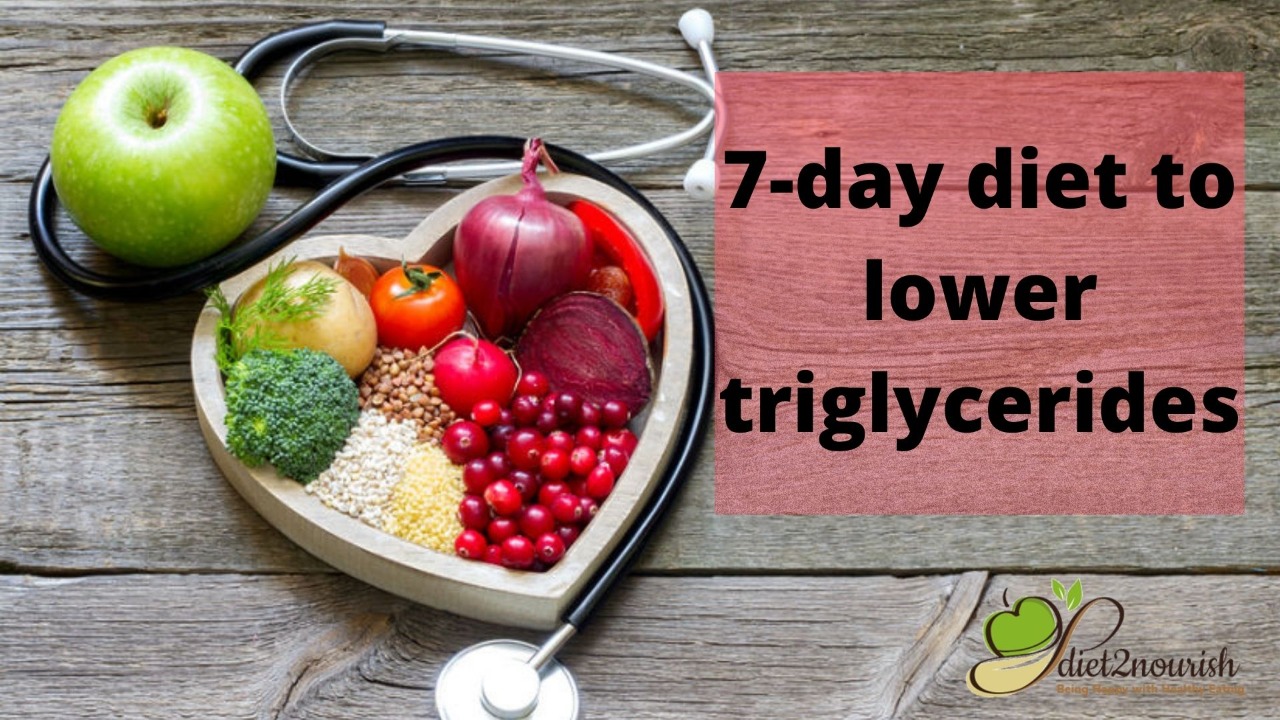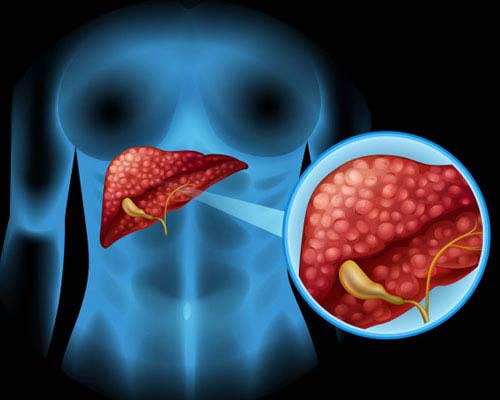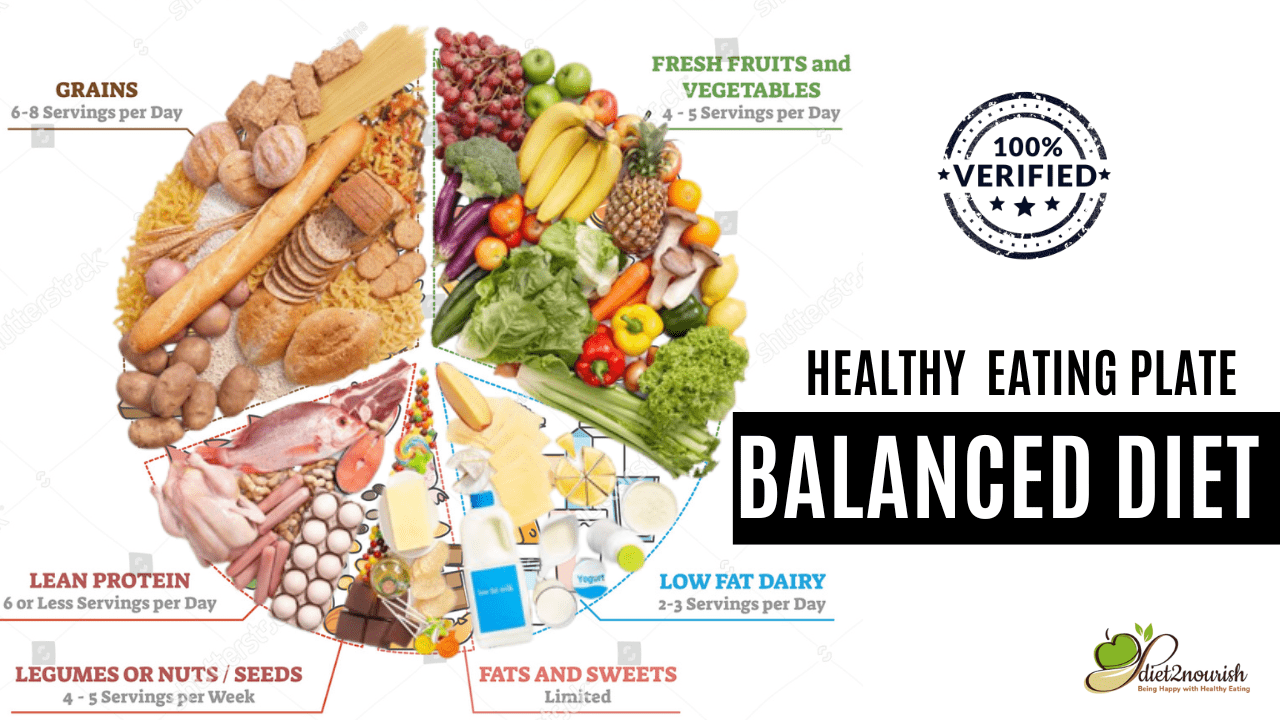dietnourish's blog
Triglycerides are a type of fat found in the blood that provide energy to the body. However, when the levels of triglycerides in the blood become too high, it can increase the risk of heart disease and stroke. High triglyceride levels can be caused by a number of factors, such as genetics, poor diet, obesity, and sedentary lifestyle. To help lower triglyceride levels, dietary modifications can be made in addition to regular exercise and medication as prescribed by a doctor. Here is a 7 day diet to lower triglycerides
- Breakfast: 2 boiled eggs, 1 slice of whole grain toast, 1 small banana, and a cup of green tea
- Snack: 1 small apple and 1 oz of almonds
- Lunch: Grilled chicken salad with mixed greens, cherry tomatoes, cucumber, red onion, and vinaigrette dressing
- Snack: 1 small pear and 1 oz of walnuts
- Dinner: Grilled salmon with roasted asparagus and brown rice
- Breakfast: 1 cup of oatmeal with sliced strawberries, 1 tbsp of honey, and a cup of black coffee
- Snack: 1 small orange and 1 oz of cashews
- Lunch: Turkey and avocado wrap with whole grain tortilla, mixed greens, and mustard dressing
- Snack: 1 small banana and 1 oz of pistachios
- Dinner: Baked cod with roasted Brussels sprouts and quinoa
- Breakfast: 1 cup of Greek yogurt with mixed berries and a cup of green tea
- Snack: 1 small peach and 1 oz of almonds
- Lunch: Tuna salad with mixed greens, cherry tomatoes, cucumber, red onion, and vinaigrette dressing
- Snack: 1 small apple and 1 oz of walnuts
- Dinner: Grilled chicken breast with roasted sweet potato and green beans
- Breakfast: 2 scrambled eggs with spinach and feta cheese, 1 slice of whole grain toast, and a cup of black coffee
- Snack: 1 small pear and 1 oz of cashews
- Lunch: Grilled shrimp salad with mixed greens, cherry tomatoes, cucumber, red onion, and vinaigrette dressing
- Snack: 1 small orange and 1 oz of pistachios
- Dinner: Baked salmon with roasted Brussels sprouts and brown rice

In today's world, staying healthy and fit has become increasingly important. One of the main aspects of maintaining good health is a balanced diet. A balanced diet is necessary for the proper functioning of our body, and it can help prevent many diseases. In North Delhi, there are many experienced and well-qualified dieticians who can help you plan a balanced diet.
A balanced diet is a diet that contains all the necessary nutrients in the right proportions. These nutrients include carbohydrates, proteins, fats, vitamins, and minerals. A balanced diet can help prevent many diseases, such as heart disease, diabetes, and obesity.
In North Delhi, there are many dieticians who can help you plan a balanced diet. They have the knowledge and expertise to provide you with a diet that meets your specific needs. They can help you create a personalized diet plan that takes into account your age, gender, activity level, and medical history.
One of the Best dietician in North Delhi is Ms. Shreya Katyal. She is a certified nutritionist and founder of Diet Podium, which is a nutrition clinic that provides personalized diet plans. Ms. Katyal has extensive experience in the field of nutrition and has helped many people achieve their health goals.
Ms. Katyal believes that a balanced diet is the key to good health. She emphasizes the importance of eating a variety of foods to ensure that you get all the necessary nutrients. Her approach is to provide a personalized diet plan that takes into account the client's preferences and lifestyle.
Another renowned dietician in North Delhi is Ms. Tripti Tandon. She is a certified nutritionist and founder of Health Total, which is a wellness clinic that offers a variety of health services, including personalized diet plans. Ms. Tandon has over 15 years of experience in the field of nutrition and has helped many people achieve their health goals.
Ms. Tandon believes that a balanced diet is essential for good health. She emphasizes the importance of eating a variety of foods to ensure that you get all the necessary nutrients. Her approach is to provide a personalized diet plan that takes into account the client's lifestyle, preferences, and medical history.
Another well-known dietician in North Delhi is Dr. Ritu Jain. She is a certified nutritionist and founder of Jain's Diet Clinic, which provides personalized diet plans. Dr. Jain has over 12 years of experience in the field of nutrition and has helped many people achieve their health goals.
Dr. Jain believes that a balanced diet is the foundation of good health. She emphasizes the importance of eating a variety of foods to ensure that you get all the necessary nutrients. Her approach is to provide a personalized diet plan that takes into account the client's preferences, lifestyle, and medical history.
In conclusion, a balanced diet is essential for good health, and there are many qualified and experienced dieticians in North Delhi who can help you plan a personalized diet. Ms. Shreya Katyal, Ms. Tripti Tandon, and Dr. Ritu Jain are some of the best dieticians in North Delhi who can help you achieve your health goals. Remember, a healthy diet is a key component of a healthy lifestyle.

A diagnosis of cancer is often a life-changing event that can bring about a host of physical, emotional, and nutritional challenges. Cancer treatments such as chemotherapy, radiation therapy, and surgery can cause a range of side effects, including nausea, vomiting, diarrhea, constipation, loss of appetite, and taste changes. These side effects can affect a patient's ability to eat and maintain a healthy diet, which can lead to malnutrition, weakened immune system, and overall poor health.
That is why it is important for cancer patients to work with a registered dietitian (RD) who specializes in oncology nutrition. An oncology dietitian can help cancer patients develop an individualized nutrition plan that meets their unique needs and helps them manage the side effects of cancer treatments.
The following are some ways that an oncology dietician for cancer patients
Developing a personalized nutrition plan: An oncology dietitian can assess a patient's nutritional needs and develop a personalized nutrition plan that is tailored to their specific needs and goals. The dietitian will take into account the type of cancer, stage of cancer, current treatment, and any side effects that the patient is experiencing.
Managing side effects: Cancer treatments can cause a range of side effects, such as nausea, vomiting, diarrhea, and taste changes. An oncology dietitian can provide tips and advice on how to manage these side effects through dietary changes and supplements.
Addressing malnutrition: Malnutrition is a common problem among cancer patients, as cancer and cancer treatments can lead to weight loss and muscle wasting. An oncology dietitian can help cancer patients meet their calorie and protein needs to prevent malnutrition and maintain their strength and energy levels.
Providing guidance on supplements: Cancer patients may benefit from taking supplements, such as vitamins, minerals, and antioxidants, to help manage side effects and maintain their overall health. An oncology dietitian can provide guidance on which supplements are safe and effective and how to take them properly.
Helping with hydration: Hydration is important for cancer patients, as they may be at increased risk of dehydration due to side effects such as vomiting and diarrhea. An oncology dietitian can provide guidance on how to stay hydrated and recommend fluids that may be better tolerated.
Educating patients on healthy eating: An oncology dietitian can provide education on healthy eating habits and food choices that can help cancer patients maintain their overall health and reduce their risk of cancer recurrence.
In conclusion, cancer patients can benefit greatly from working with an oncology dietitian. The dietitian can provide personalized nutrition advice, help manage side effects of cancer treatments, prevent malnutrition, provide guidance on supplements and hydration, and educate patients on healthy eating habits. If you or a loved one has been diagnosed with cancer, consider reaching out to an oncology dietitian to help manage your nutritional needs and improve your overall health and well-being.

A balanced diet is one that provides all the essential nutrients that the body needs to function properly. These nutrients include carbohydrates, proteins, fats, vitamins, minerals, and water. A balanced diet can help maintain a healthy weight, prevent chronic diseases such as diabetes and heart disease, improve cognitive function, and promote overall health and well-being.
Here are some key components of a Balanced Diet
Carbohydrates: Carbohydrates are an important source of energy for the body. They are found in foods such as bread, pasta, rice, fruits, and vegetables. Carbohydrates should make up around 45-65% of the total calories consumed in a day.
Proteins: Proteins are essential for building and repairing tissues in the body. They are found in foods such as meat, fish, eggs, beans, and nuts. Proteins should make up around 10-35% of the total calories consumed in a day.
Fats: Fats are an important source of energy and help the body absorb vitamins. They are found in foods such as butter, oils, nuts, and fatty fish. However, it's important to choose healthy fats such as unsaturated fats found in fish, nuts, and vegetable oils, and limit unhealthy fats such as saturated and trans fats found in processed foods and animal products. Fats should make up around 20-35% of the total calories consumed in a day.
Vitamins and Minerals: Vitamins and minerals are essential for various functions in the body, including maintaining healthy bones, skin, and eyes, and supporting the immune system. They are found in foods such as fruits, vegetables, dairy products, and whole grains.
Water: Water is essential for various functions in the body, including maintaining body temperature, transporting nutrients, and removing waste products. It's recommended to drink around 8-10 glasses of water per day.
Eating a balanced diet does not mean eating a perfect diet every day. Rather, it's about making healthy choices consistently over time. Here are some tips for maintaining a balanced diet:
Eat a variety of foods: Eating a variety of foods ensures that the body gets all the essential nutrients it needs. Include fruits, vegetables, whole grains, lean proteins, and healthy fats in your diet.
Choose whole foods over processed foods: Whole foods are typically more nutrient-dense than processed foods, which are often high in calories, salt, and unhealthy fats. Choose whole foods such as fruits, vegetables, and whole grains, and limit processed foods such as chips, cookies, and sugary drinks.
Pay attention to portion sizes: Portion sizes can impact the number of calories consumed. Use smaller plates and bowls, and avoid eating straight from the package. Aim to fill half of your plate with fruits and vegetables, one-quarter with protein, and one-quarter with whole grains.
Limit added sugars and salt: Added sugars and salt can contribute to chronic diseases such as diabetes and heart disease. Limit intake of sugary drinks, sweets, and processed foods, and opt for natural sweeteners such as fruit instead. Use herbs and spices to add flavor to food instead of salt.
Stay hydrated: Drinking enough water is important for overall health and well-being. Choose water over sugary drinks, and drink water before meals to help with portion control.
In conclusion, a balanced diet is essential for overall health and well-being. A balanced diet should include a variety of foods, including carbohydrates, proteins, healthy fats, vitamins, and minerals. Paying attention to portion sizes, choosing whole foods over processed foods, limiting added sugars and salt, and staying hydrated can all help maintain a balanced diet. By making healthy choices consistently over time, a balanced diet can promote a healthy weight.

A dietician can play an important role in the treatment and management of cancer. Cancer patients often experience changes in appetite, digestion, and nutrient absorption, which can lead to malnutrition and weight loss. A dietician can help cancer patients maintain adequate nutrition and manage their symptoms, improving their overall quality of life.
Here are some key ways in which a dietician for cancer patients
Assessing Nutritional Needs: A dietician can assess a cancer patient's nutritional needs and develop a personalized nutrition plan that takes into account their health status, treatment plan, and personal preferences. This plan may include recommendations for foods to eat or avoid, as well as guidelines for portion sizes and meal frequency.
Managing Symptoms: Cancer patients may experience a variety of symptoms that can affect their ability to eat and absorb nutrients, such as nausea, vomiting, diarrhea, and constipation. A dietician can help manage these symptoms by recommending specific foods or supplements that can soothe the digestive system or alleviate nausea.
Preventing Malnutrition: Cancer and its treatments can cause malnutrition, which can weaken the immune system and affect the body's ability to fight the disease. A dietician can help cancer patients maintain adequate nutrition by recommending high-calorie, high-protein foods, as well as nutritional supplements and tube feeding, if necessary.
Managing Weight: Cancer patients may experience unintended weight loss or gain, which can impact their overall health and well-being. A dietician can help cancer patients manage their weight by developing a nutrition plan that supports healthy weight gain or loss, depending on their individual needs.
Supporting Immune Function: Proper nutrition is important for maintaining a strong immune system, which is essential for fighting cancer. A dietician can recommend foods and supplements that are high in immune-boosting nutrients, such as vitamins C and E, beta-carotene, and zinc.
Promoting Recovery: A dietician can help cancer patients recover from treatment by recommending foods and supplements that support healing and tissue repair. This may include foods that are rich in antioxidants, protein, and essential nutrients, as well as supplements such as omega-3 fatty acids and probiotics.
When choosing a dietician for cancer patients, it's important to look for someone who is experienced in working with cancer patients and who understands the unique nutritional needs and challenges associated with cancer. A good dietician should be able to work closely with the patient's medical team to develop a nutrition plan that complements their treatment plan and promotes optimal health and wellness.
During the initial consultation with a dietician, the patient's medical history, treatment plan, and nutritional needs will be assessed. The dietician will then work with the patient to develop a personalized nutrition plan that takes into account their individual needs, preferences, and lifestyle. The dietician will also provide ongoing support and monitoring to ensure that the patient's nutritional needs are being met and that they are experiencing optimal health and well-being.
In conclusion, a dietician can play a vital role in the treatment and management of cancer. By helping cancer patients maintain adequate nutrition, manage symptoms, and support their immune system, a dietician can improve their overall quality of life and promote healing and recovery. If you or a loved one is undergoing cancer treatment, consider working with a dietician to develop a personalized nutrition plan that supports your health and well-being.

If you're looking for a dietician in Pune, there are many qualified professionals to choose from. Here are some of the Best Dietician In Pune
Dr. Swati Shriyan: Dr. Shriyan is a well-known dietician and nutritionist in Pune, with over 10 years of experience in the field. She offers personalized diet plans based on individual needs and health conditions, and specializes in weight management, diabetes management, and sports nutrition.
Dt. Sujata Dinakar: With over 20 years of experience in the field of nutrition and dietetics, Dt. Dinakar is a highly respected dietician in Pune. She offers a variety of services, including weight loss programs, diabetes management, and nutrition counseling for expectant and nursing mothers.
Dt. Shweta U. Shah: Dt. Shah is a certified dietician and nutritionist with over 7 years of experience. She provides customized diet plans based on individual health goals and requirements, and specializes in weight management, diabetes management, and nutrition counseling for children and teenagers.
Dt. Priyanka Khandelwal: Dt. Khandelwal is a renowned dietician and nutritionist in Pune, with over 15 years of experience in the field. She offers personalized diet plans for a variety of health conditions, including diabetes, thyroid disorders, and cardiovascular disease.
Dt. Pooja Doshi: With over 8 years of experience in the field of nutrition and dietetics, Dt. Doshi is a well-respected dietician in Pune. She offers personalized diet plans based on individual health goals and requirements, and specializes in weight management, diabetes management, and nutrition counseling for expectant and nursing mothers.
Dt. Madhuri Ruia: Dt. Ruia is a highly regarded dietician and nutritionist in Pune, with over 10 years of experience. She offers customized diet plans for weight management, diabetes management, and overall health and wellness.
When choosing a dietician in Pune, it's important to consider their qualifications, experience, and areas of expertise. Look for a dietician who is certified and has experience working with clients who have similar health concerns as you. It's also important to find a dietician who is approachable and who listens to your concerns and goals.
During your initial consultation with a dietician, be sure to discuss your health history, any health conditions you have, and your goals for your diet and lifestyle. Your dietician will then develop a personalized plan that takes into account your specific needs and preferences.
In conclusion, there are many qualified and experienced dieticians in Pune who can help you achieve your health goals through personalized nutrition plans. It's important to do your research and choose a dietician who is a good fit for you and your needs. By working with a dietician, you can improve your overall health and wellness and make long-lasting changes to your diet and lifestyle.

One way to do this is through diet. Here is a 7 day diet to lower triglycerides
Day 1:
Breakfast: Greek yogurt with fresh berries and a handful of almonds.
Lunch: Grilled chicken breast with a mixed green salad and olive oil and vinegar dressing.
Dinner: Baked salmon with roasted vegetables and brown rice.
Snacks: Carrot sticks with hummus, an apple with almond butter.
Day 2:
Breakfast: Oatmeal with fresh berries and a drizzle of honey.
Lunch: Tuna salad with mixed greens and a lemon vinaigrette dressing.
Dinner: Grilled chicken with sautéed spinach and sweet potato.
Snacks: Celery sticks with almond butter, a handful of unsalted mixed nuts.
Day 3:
Breakfast: Scrambled eggs with spinach and whole grain toast.
Lunch: Turkey sandwich on whole grain bread with mixed greens and avocado.
Dinner: Broiled fish with roasted vegetables and quinoa.
Snacks: Apple slices with almond butter, a handful of pumpkin seeds.
Day 4:
Breakfast: Greek yogurt with fresh berries and a handful of walnuts.
Lunch: Grilled chicken with mixed greens, roasted beets, and a balsamic vinaigrette dressing.
Dinner: Baked salmon with steamed broccoli and brown rice.
Snacks: Carrot sticks with hummus, a small piece of dark chocolate.

When it comes to finding the best dietician in North Delhi, there are a number of factors to consider. A good dietician should have the proper education and training, experience working with patients, and the ability to provide personalized nutrition plans that meet each patient's unique needs. Here are a few of the Best dietician in North Delhi that meet these criteria:
Dr. Anjali Hooda Sangwan: Dr. Sangwan is a well-known dietician in North Delhi who has extensive experience in the field of nutrition and lifestyle medicine. She holds a PhD in nutrition and has worked with patients of all ages and backgrounds. Dr. Sangwan is known for her evidence-based approach to nutrition and her ability to develop personalized plans that are tailored to each patient's needs. She has also authored several books on nutrition and lifestyle medicine, making her a trusted source of information for those looking to improve their health through diet and lifestyle changes.
Dr. Shikha Sharma: Dr. Sharma is another popular dietician in North Delhi who has been practicing for over 20 years. She holds a degree in medicine and has specialized training in nutrition and weight management. Dr. Sharma is known for her holistic approach to health and wellness, which includes a focus on stress management, sleep, and exercise in addition to nutrition. She has developed her own line of supplements and health products and has been featured in numerous media outlets for her expertise in nutrition and wellness.
Dt. Munmun Ganeriwal: Dt. Ganeriwal is a celebrity nutritionist who has worked with a number of high-profile clients in North Delhi and beyond. She holds a degree in food science and nutrition and has over a decade of experience working with patients to improve their health through diet and lifestyle changes. Dt. Ganeriwal is known for her innovative approach to nutrition, which includes a focus on traditional Indian foods and the use of superfoods and natural supplements to improve health. She is also an advocate for sustainable and ethical food practices and has developed a number of recipes and meal plans that promote these principles.
Dt. Ishi Khosla: Dt. Khosla is a well-respected dietician in North Delhi who has over 35 years of experience in the field of nutrition. She holds a degree in nutrition and has written several books on the topic, making her a trusted source of information for those looking to improve their health through diet. Dt. Khosla is known for her evidence-based approach to nutrition and her ability to develop personalized plans that meet each patient's unique needs. She has worked with patients of all ages and backgrounds and is particularly skilled at developing plans for those with complex medical conditions.
Dt. Shweta Gupta: Dt. Gupta is a dietician in North Delhi who has over 10 years of experience working with patients to improve their health through diet and lifestyle changes. She holds a degree in nutrition and has specialized training in weight management and sports nutrition. Dt. Gupta is known for her compassionate approach to patient care and her ability to develop personalized plans that are both practical and effective. She has worked with patients of all ages and backgrounds and is particularly skilled at developing plans for those with busy lifestyles.
In conclusion, finding the best dietician in North Delhi requires careful research and consideration. Each of the dieticians listed above has the proper education and training, experience working with patients, and the ability to provide personalized nutrition plans that meet each patient's unique needs. Patients should consider their own needs and preferences when selecting a dietician and choose someone who they feel comfortable working with and who can provide the guidance and support they need to achieve their health goals.

A registered dietician who specializes in oncology nutrition is an essential member of the multidisciplinary team that cares for cancer patients. The role of a dietician for cancer patients care is to help patients maintain or improve their nutritional status, which is critical for managing the disease and improving quality of life. A cancer diagnosis can be overwhelming for patients, and many may not think about their diet as a key component of their treatment plan. However, proper nutrition is vital for cancer patients to cope with the side effects of treatment, prevent malnutrition, and enhance their immune system.
Cancer and its treatment can cause a wide range of nutritional challenges, including loss of appetite, taste changes, nausea, vomiting, and diarrhea. The dietician's role is to work with patients to address these challenges and develop a personalized nutrition plan that meets their unique needs. For example, if a patient is experiencing nausea, the dietician may recommend small, frequent meals that are low in fat and easy to digest. If a patient is struggling with taste changes, the dietician may suggest adding spices, herbs, or lemon juice to make food more flavorful.
A dietician also helps cancer patients maintain a healthy weight, which is crucial for their overall health and well-being. Studies have shown that being overweight or obese increases the risk of developing certain types of cancer, and losing weight can help reduce the risk of recurrence. On the other hand, cancer patients who are underweight or malnourished are at a higher risk of developing complications from treatment, such as infections and delayed wound healing. A dietician can help patients achieve a healthy weight by developing a meal plan that balances their energy needs with the nutritional requirements of their treatment.
Another important role of a dietician is to educate patients on the importance of good nutrition and how it can impact their overall health. This includes teaching patients about the types of foods they should eat, how to read food labels, and how to prepare meals that are both nutritious and tasty. The dietician may also provide patients with resources and support, such as recipes, meal plans, and tips for grocery shopping.
In addition to working with individual patients, a dietician may also collaborate with other members of the cancer care team to improve patient outcomes. For example, they may work with the oncologist to develop a nutrition plan that is tailored to the patient's specific cancer type and treatment plan. They may also work with the nurse to monitor the patient's nutritional status and adjust their diet as needed. By working collaboratively with other members of the care team, a dietician can help ensure that patients receive the best possible care.
In conclusion, a registered dietician who specializes in oncology nutrition plays a vital role in the care of cancer patients. By developing personalized nutrition plans, addressing nutritional challenges, and educating patients on the importance of good nutrition, a dietician can help patients maintain their health and quality of life throughout their cancer journey. Working collaboratively with other members of the care team, a dietician can help ensure that patients receive the comprehensive care they need to manage their disease and thrive.

A balanced diet is essential for maintaining good health and well-being. It involves consuming the right amount of nutrients and calories to maintain a healthy weight and provide the body with the energy and nutrients it needs to function properly. A balanced diet should include a variety of foods from all food groups, including fruits, vegetables, whole grains, lean proteins, and healthy fats.
The benefits of a Balanced Diet
Maintains a healthy weight: Consuming a balanced diet can help you maintain a healthy weight. When you eat a variety of foods from all food groups, you are more likely to get the nutrients and energy you need without consuming excess calories.
Provides energy: A balanced diet provides the body with the energy it needs to function properly. Consuming foods that are rich in carbohydrates, such as fruits, vegetables, and whole grains, can help provide sustained energy throughout the day.
Promotes good health: A balanced diet can help reduce the risk of chronic diseases such as heart disease, diabetes, and cancer. A diet that is rich in fruits, vegetables, and whole grains is associated with a lower risk of these diseases.
Boosts the immune system: A balanced diet can help boost the immune system and improve overall health. Foods that are rich in vitamins and minerals, such as fruits and vegetables, can help strengthen the immune system and reduce the risk of infections.
Improves mood: A balanced diet can improve mood and reduce the risk of depression. Consuming foods that are rich in omega-3 fatty acids, such as fatty fish and nuts, can help reduce inflammation in the brain and improve mood.
Tips for maintaining a balanced diet:
Eat a variety of foods: A balanced diet should include a variety of foods from all food groups. This can help ensure that you get all the nutrients you need to stay healthy.
Limit processed foods: Processed foods are often high in calories, sugar, and fat and low in nutrients. Limiting these foods can help you maintain a healthy weight and reduce the risk of chronic diseases.
Choose whole grains: Whole grains are rich in fiber, vitamins, and minerals and can help promote good health. Choosing whole grain bread, pasta, and rice over refined grains can help you get the nutrients your body needs.
Consume lean proteins: Lean proteins, such as chicken, fish, and beans, are an important part of a balanced diet. They provide the body with essential amino acids and can help build and repair tissues in the body.
Eat plenty of fruits and vegetables: Fruits and vegetables are rich in vitamins, minerals, and antioxidants and can help reduce the risk of chronic diseases. Aim to consume at least five servings of fruits and vegetables per day.
Include healthy fats: Healthy fats, such as those found in nuts, seeds, and fatty fish, can help reduce inflammation in the body and promote good health. Limiting saturated and trans fats can help reduce the risk of chronic diseases.
Stay hydrated: Drinking plenty of water and other fluids can help keep the body hydrated and promote good health. Aim to consume at least eight glasses of water per day.
In conclusion, a balanced diet is essential for maintaining good health and well-being. It involves consuming a variety of foods from all food groups and limiting processed foods, saturated and trans fats. By following the tips for maintaining a balanced diet, you can ensure that you get all the nutrients your body needs to stay healthy and reduce the risk of chronic diseases.

